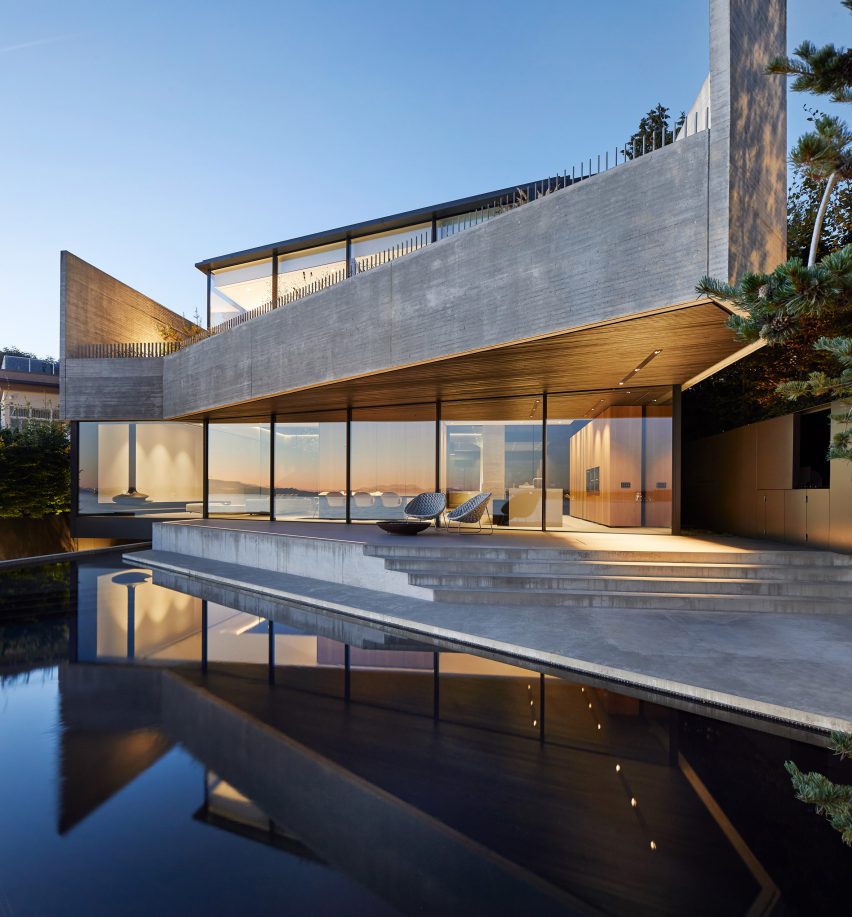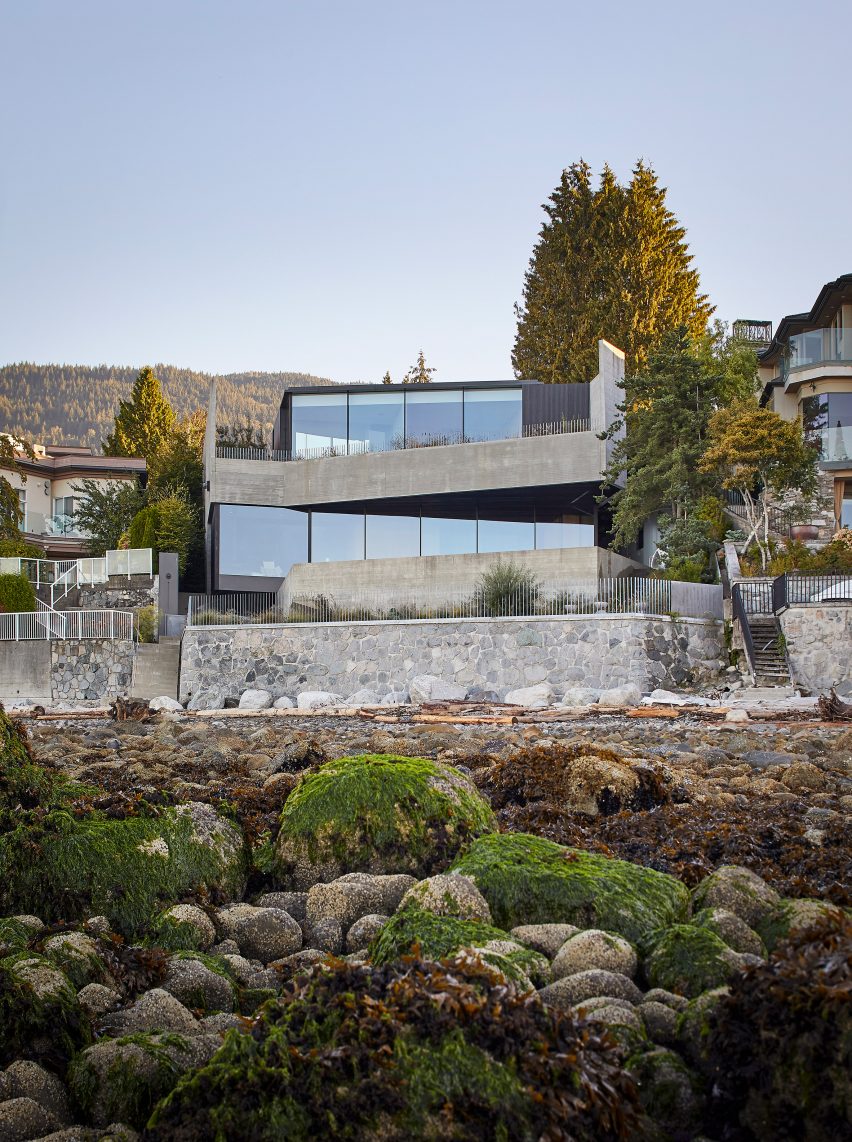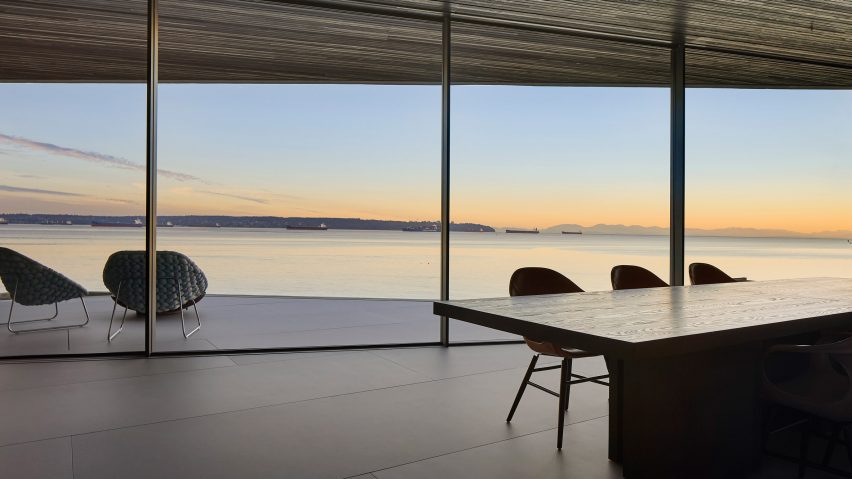Local design studio McLeod Bovell has completed a seaside home with a dramatic cantilever and multiple lightwells in West Vancouver, British Columbia.
Vancouver-based McLeod Bovell Modern Houses designed the 10,940-square foot (1,016-square metre) Liminal House in 2022.

"The 'liminal' is a transformational state between where one thing begins and another ends; the position where something meets, mixes, and merges," the team told Dezeen.
"Liminal House straddles a similar threshold between West Vancouver's natural stony seashore and its suburban residential neighbourhood."

The steep site overlooks the Pacific Ocean, so the team used the house's organisation to choreograph movement toward the shoreline.
Organised as a journey rather than around a singular focal point, the spaces pass between interior courtyards.
Entered from an autocourt on the hillside, the main level features a kitchen, dining and living space with a floating fireplace.
A central architectural stair and planted courtyard garden separate the public spaces from the garage.
Meanwhile, a wall of floor-to-ceiling glazing opens the family areas to a covered terrace and pool with a waterfall edge that disappears into the ocean.
The basement level holds service and recreational spaces with more car storage, an office, lounge space, utility room and a guest suite.
A lightwell brings sunlight deep into the partially underground level. On the south side of the plan, a covered terrace walks out to a spa and lower garden below the pool.
The top floor cantilevers over the main level with an exterior terraced garden that wraps around the plan.
The glazed primary suite looks out to the ocean with a "false beachfront" balcony, while three guest suites are lined along the interior of the plan and open to the terrace. A large opening in the terrace forms another lightwell to the autocourt below.
"Courtyards, cantilevered volumes, and the extension of floor area over exterior space dismantles boundaries between the house and the natural environment," the team said.
"This strategy of mixing and merging, where light is reflected and landscapes are invited towards the interior of the home, collapses normal readings of interior space."
Chosen for their durability in harsh climates, board-formed concrete, black-stained Accoya wood and coated aluminium plate make up the exterior.
The one-inch-thick Accoya boards are biodegradable, recyclable and carbon-neutral over their lifecycle.
"Conceptually, the house is fortress-like in form and function – a hard shell that opens strategically to its surroundings," the team said.
The glazed surfaces – with high-quality, thermally insulated glass and a Low-E coating to reduce heat loss – serve as the "soft counterpart to the exoskeleton," set into concealed frames.
On the interior, large format slabs of non-VOC Lapitec sintered stone cover the floors while European oak millwork, panelling and stair treads warm the space.
"We found that the reflective 'reverberation' created by the deep glazed courtyards animate all the spaces in the house in surprising ways," the team said.
"Unexpected partial fragments of water-view or internal planted landscapes coexist in the interior and exterior spaces alongside furniture, and interior finishes in active ways that change continuously during the day with fluctuating lighting and sky conditions."
Featuring a similar cantilevered response to a sloped site, McLeod Bovell completed the Container House in West Vancouver in 2018 and clad it in custom grey cement-composite panels.
The photography is by Hufton + Crow Photography.
Project credits:
Lead designers: Lisa Bovell, Matt McLeod

